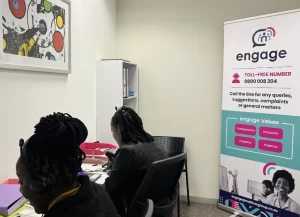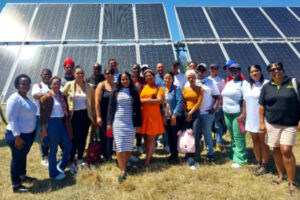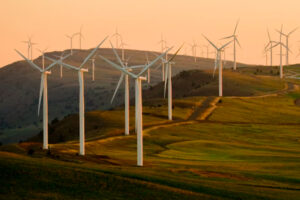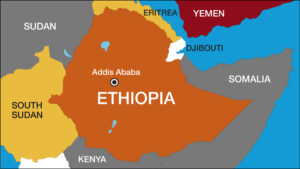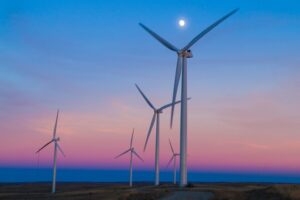Fezeka Stuurman was a contributing author in this article that was first published in Centre for Sustainability Transitions.
A collection of insights emerging from the national large-scale renewable energy programme.
South Africa is faced with myriad changes to its economy, landscape and social fabric as the shift away from fossil fuels calls into question the century-long reign of coal, as the most prominent feature of the country’s electricity system. These changes are imminent, incremental, drastic, existential, and urgent all at once.
In this edited collection of essays, researchers and practitioners, occupying varying positionalities in the energy sector, reflect on their experiences in grappling with the implementation and governance of renewable energy technologies across a diverse range of configurations and locations in South Africa. The volume has been in the works since 2019 and the editorial team, comprising Megan Davies, Holle Wlokas, Nina Callaghan and Mark Swilling, are pleased that it will be available to students, researchers and practitioners alike as a compendium to grappling with the challenges of the unfolding energy transition in South Africa. Contributors are all in some way, connected to the socio-technical energy transitions research group at the Centre for Sustainability Transitions.
Driven by climate change, the changing economics of energy, and a growing awareness of the socio-ecological externalities of fossil fuels, countries across the world are tasked by international policy agreements to decarbonise and advance low-carbon development pathways. To this end, renewable energy was formally introduced into South Africa’s energy policy landscape in 2011, under the banner of the Renewable Energy Independent Power Producer Procurement Programme (REIPPPP). Since then, the last decade has allowed the country to catch a glimpse of what the future energy landscape might entail, where renewable energy infrastructures form the basis of our electricity system and power a low-carbon economic development trajectory that meets the country’s triple challenge of poverty, inequality and unemployment. The contributions in this volume look at the lessons and insights emerging from the last decade, with the hope that this reflection allows us to shape the direction of South Africa’s inevitable energy transition.
The collection has been assembled across five sections. The intention with this publication is to present a series of insights from practitioners and researchers about the role of renewable energy in South Africa’s ambitions to achieve decarbonisation and development. The reader is invited to meander through these different offerings, dipping into each of these sections depending on their interest and positionality in the energy sector.
The full collection can be found here.


